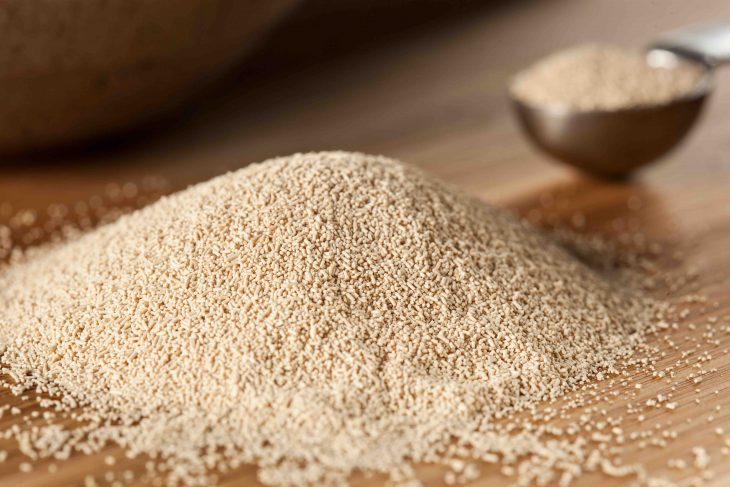
Yeast, a single-celled fungus, holds a remarkable place in the world of microbiology and human civilization. From its ancient discovery to its modern applications, yeast continues to intrigue scientists and enrich our lives in various ways. In this comprehensive article, we will delve into 11 fascinating facts about yeast that will expand your knowledge and appreciation for this versatile microorganism. So, let’s embark on a yeast-filled journey and uncover the secrets of this microscopic wonder.
The Discovery of Yeast: A Tale from Ancient Times
Yeast’s history dates back thousands of years. The Egyptians were the first to harness its power for baking bread, while the Babylonians used it for brewing beer. In 1680, Antonie van Leeuwenhoek, a Dutch scientist, first observed yeast cells under a microscope, unraveling the hidden world of these tiny organisms.
The Versatility of Yeast: A Multitude of Species
Yeast comprises various species, but one of the most well-known and widely used is Saccharomyces cerevisiae. This species is commonly used in baking, brewing, and scientific research. Other yeast species, such as Candida, have both beneficial and pathogenic roles, depending on their environment and host.
Yeast and Fermentation: Unleashing Nature’s Magic
Yeast is nature’s alchemist, transforming sugars into alcohol and carbon dioxide through the process of fermentation. This natural phenomenon is harnessed in the production of bread, beer, wine, and other fermented foods and beverages that we enjoy today.
The Essential Role of Yeast in Baking
In baking, yeast serves as a leavening agent, giving bread its characteristic rise and texture. When yeast consumes sugars, it produces carbon dioxide gas, which forms bubbles in the dough, causing it to expand and create a light, airy structure.
Brewing Beer: Yeast’s Age-Old Companion
Beer brewing relies on the fermentation prowess of yeast. Brewer’s yeast, such as Saccharomyces cerevisiae, ferments the sugars in malted barley, leading to the creation of beer’s distinct flavors and alcohol content.
The Science of Distillation: Yeast’s Contribution to Spirits
Yeast also plays a pivotal role in distillation, the process of obtaining concentrated alcoholic beverages like whiskey and vodka. During fermentation, yeast transforms sugar into alcohol, which is later distilled to produce spirits with enhanced flavors and potency.
The Genetic Marvel of Yeast
Yeast has become a superstar in genetics research. Its simple and easily manipulated genetic structure has made it an invaluable model organism for studying human diseases and cellular processes. Nobel Prize-winning studies have used yeast to unravel fundamental mechanisms, such as the cell cycle and protein synthesis.
Yeast as a Baker’s Ally: The Art of Sourdough

Sourdough bread owes its distinctive tangy flavor and chewy texture to the partnership between yeast and lactic acid bacteria. The symbiotic relationship between these microorganisms creates a natural fermentation process, providing depth and complexity to sourdough bread.
Yeast Extracts: A Flavorful Secret Ingredient
Yeast extracts, such as Marmite and Vegemite, are beloved condiments known for their unique umami flavor. These extracts are made by autolysis, a process where yeast cells break down, releasing savory compounds that enhance the taste of various dishes.
Role in Medicine: From Vaccines to Antifungals
Yeast has found its place in medical advancements. It is used in the production of vaccines, including the Hepatitis B vaccine, which relies on a recombinant form of yeast-produced viral proteins. Antifungal medications, such as fluconazole, target yeast infections caused by Candida species, providing relief to those affected by these common ailments.
Yeast in Sustainable Solutions: A Renewable Fuel Source
Yeast’s talent extends to the realm of biofuel production. It can ferment plant-derived sugars to produce ethanol, a renewable and eco-friendly alternative to fossil fuels. Bioethanol, derived from yeast fermentation, reduces greenhouse gas emissions and offers a sustainable energy source for transportation and other applications.
Final Thoughts
Yeast, the unsung hero of the microbial world, has been instrumental in shaping human civilization for thousands of years. From the wonders of fermentation to its significant contributions in baking, brewing, medicine, and research, yeast continues to surprise and delight us. This article has shed light on 11 fascinating facts about yeast, revealing the hidden depths of this tiny yet powerful organism. So, the next time you savor a loaf of bread or raise a glass of beer, remember the microbial magic happening within, courtesy of yeast.
Frequently Asked Questions (FAQs)
Can yeast be harmful to humans?
While most yeast species are harmless or beneficial, certain types, like Candida, can cause infections in humans. However, yeast infections can often be treated with antifungal medications. If you suspect an infection, it is best to consult a healthcare professional for proper diagnosis and treatment.
Is yeast suitable for a gluten-free diet?
Yeast itself does not contain gluten, making it suitable for a gluten-free diet. However, individuals with gluten intolerance or celiac disease should always check product labels, as yeast-containing products may still contain gluten from other ingredients.
Can I make my own yeast at home?
Yes, you can create your own yeast starter at home using a combination of flour and water. By capturing wild yeast from the environment, you can nurture and cultivate your own homemade yeast for baking.
Is yeast a form of bacteria?
No, yeast and bacteria are two distinct types of microorganisms. Yeast belongs to the fungal kingdom, while bacteria comprise a separate group of single-celled organisms.
Are there non-food applications of yeast?
Absolutely! Yeast has applications beyond the culinary world. It is used in scientific research, pharmaceutical production, wastewater treatment, and even in the production of bio-based chemicals.
Was this page helpful?
Our commitment to delivering trustworthy and engaging content is at the heart of what we do. Each fact on our site is contributed by real users like you, bringing a wealth of diverse insights and information. To ensure the highest standards of accuracy and reliability, our dedicated editors meticulously review each submission. This process guarantees that the facts we share are not only fascinating but also credible. Trust in our commitment to quality and authenticity as you explore and learn with us.
